The 5 Most Affordable Medical Alert Systems, Tested by Caregivers
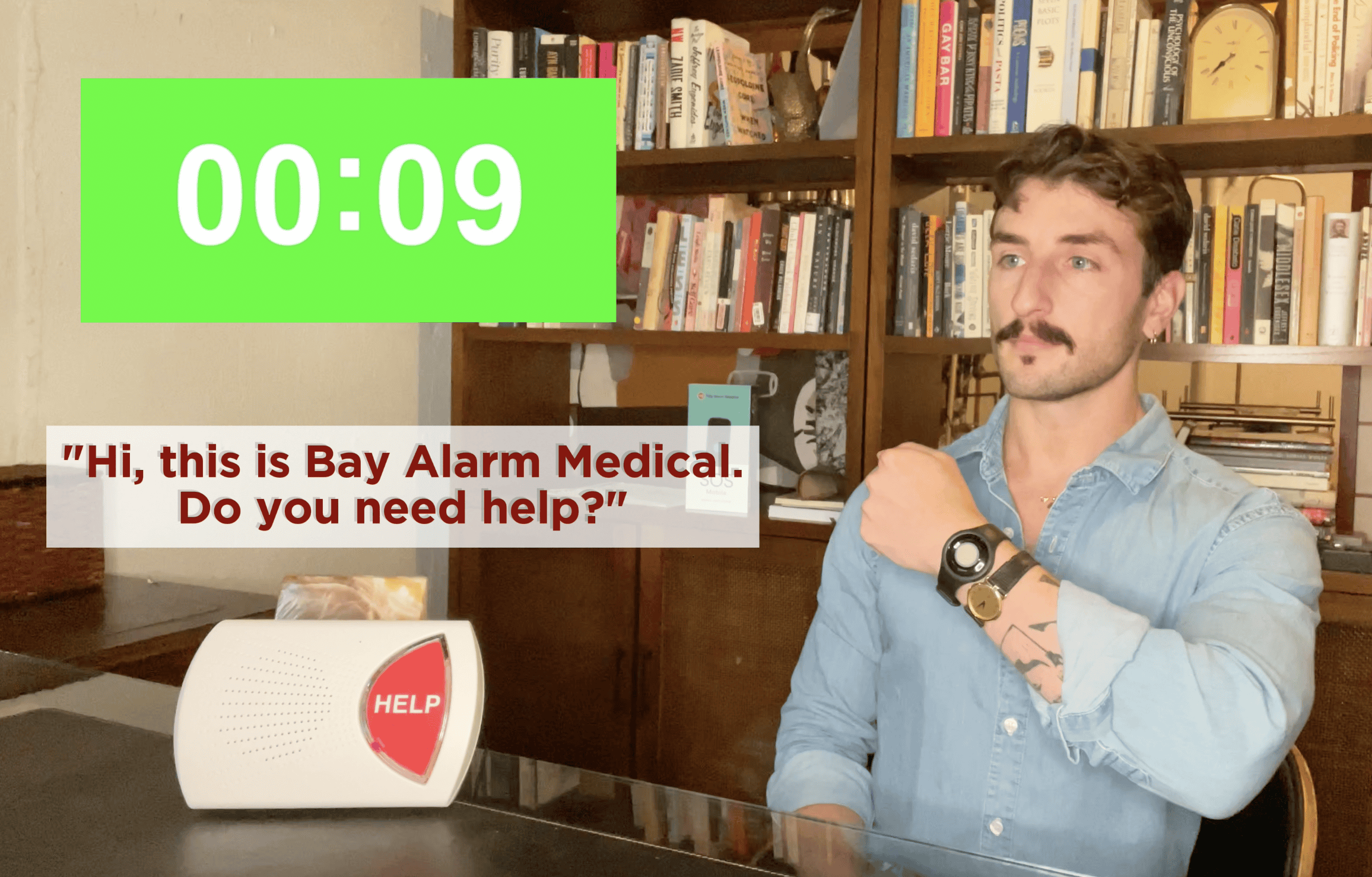
Key Findings
- Bay Alarm Medical has the most affordable landline system, the SOS Home, which costs $24.95 per month, with no equipment charges required.
- MobileHelp has the cheapest cellular system, the MobileHelp Classic, which costs $24.95 per month.
- The Lively Mobile2 has the lowest price for a mobile system, costing $24.99 per month.
- None of the providers on this list require long-term contracts.
Pro Tip: If cost is of no concern, then we’d recommend checking out our rundown of the best medical alert systems overall.
Why Trust TheSeniorList
At TheSeniorList, our team of caregivers, experts, and healthcare professionals conducted over 5,000 hours of in-depth research and testing to recommend the most reliable brands and devices. In this process, our team:
- Tested 50 medical alert devices from 15 different brands.
- Surveyed 1,250 seniors and caregivers on medical alert system usage.
- Consulted with nurses, EMTs, and caregivers who are experts at caring for older adults.
- Published dozens of videos that demonstrate our medical alert system testing.
- Evaluated verified customer reviews of medical alert companies from the Better Business Bureau.
How We Test Medical Alert Systems
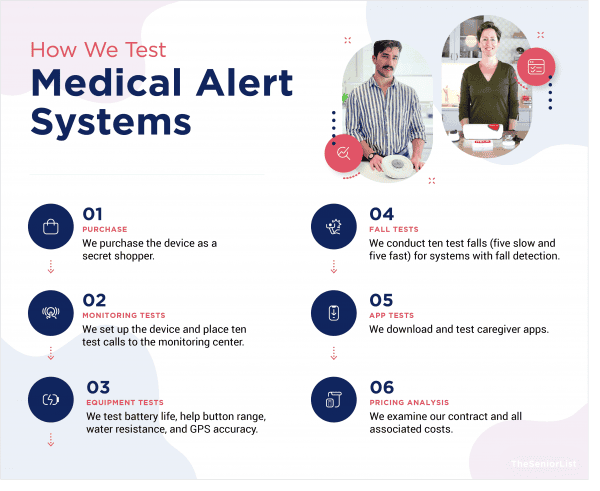
To evaluate the best affordable medical alert systems, we examined 50 different devices, evaluating them on the following criteria:
- Monthly cost: For this list, we weighed overall costs as the most important ranking criteria. Every system on this list has options for $30 per month or less.
- Contracts: Every company on this list allows subscribers to choose month-to-month contracts, and some of them offer discounts for those willing to commit to semi-annual or annual agreements.
- Response times: If a medical alert can’t give a user quick access to help, then it’s worthless, so we conducted 10 test calls with each of them to determine how quickly our emergency calls were answered.
- Additional fees: Between accessories, add-on features, and one-time setup fees, some medical alert companies try to nickel-and-dime users for additional features. We gave preference to companies that kept these fees to a minimum.

Most Affordable Medical Alert Systems
- Bay Alarm Medical : Under $30 per Month
- MobileHelp : Most Affordable Systems
- Lively Mobile2 : Cheapest Mobile System
- Aloe Care Health : Advanced Caregiver Features
- Medical Guardian : Fastest Response Times
Affordable Medical Alert Systems Compared
|
Bay Alarm Medical
 |
MobileHelp
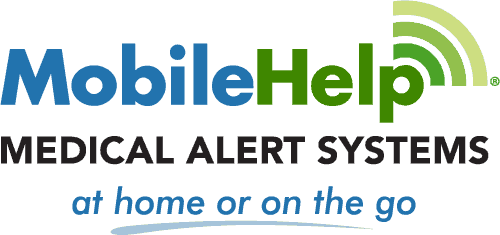 |
Lively Mobile2
 |
Aloe Care Health
 |
Medical Guardian
 |
|
|---|---|---|---|---|---|
| Rating out of 5 | 4.8 | 4.5 | 4.1 | 4.4 | 4.7 |
| Starting Monthly Cost | $24.95 |
$24.95 |
$24.99 |
$29.99 |
$31.95 |
| Minimum Contract Length | 1 Month |
1 Month |
1 Month |
1 Month |
1 Month |
| Average Response Time | 16 seconds |
26 seconds |
13 seconds |
19 seconds |
8 seconds |
| Read More | Bay Alarm Medical Review | MobileHelp Review | Lively Mobile2 Review | Medical Guardian Review |
Most Affordable Medical Alert Systems
1. Bay Alarm Medical - Under $30 per Month
What We Like Most:
- 30-day risk-free trial
- Optional fall detection
- Location tracking on mobile units
- Systems starting at $24.95 per month
Overview
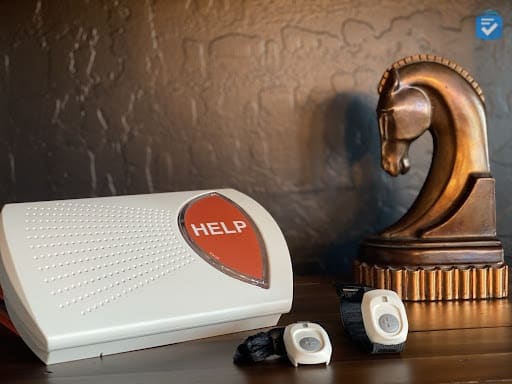
Bay Alarm Medical has been around for over 70 years. We’ve always been very impressed with its quality products and dedication to customer service. All its systems come with a 30-day risk-free trial, so you can try it out and return it for a full refund (minus shipping) with no questions asked.
Bay Alarm’s Most Affordable System
Bay Alarm prices start at $19.95 per month for its in-home landline system, which includes a base station and a help button (on either a wristband or a lanyard). The cellular version costs an extra $10 per month.
In addition to its stellar monitoring center, which routinely answered our test calls in about 16 seconds, Bay Alarm’s in-home system boasts some impressive specs. The base station has a backup battery that lasts 32 hours — hopefully enough to keep you protected through a power outage. Its help buttons are also waterproof, so you can remain protected in the shower, tub, or pool.
Another way Bay Alarm Medical helps you save is through its free spouse monitoring. Many companies require an additional subscription fee to add another person to your system, but Bay Alarm charges only a one-time $35 fee for an additional help button.
Drawbacks
While the home systems from Bay Alarm Medical come with no extra setup fees, their mobile systems will cost an extra $99 to $159. Luckily, these charges are a one-time thing.
>> Read more: Bay Alarm Medical Watch Review
Our Verdict
When it comes to affordable medical alert systems, there’s hardly a better option than Bay Alarm Medical. For more information on this company and its other systems, check out my full review of Bay Alarm Medical.
Pros
- No long-term contracts required
- Quick response times
- Mobile GPS tracking
- Caregiver features
- Systems from $27.95 per month
- Voice and wall-mounted buttons
Cons
- Higher up-front costs for mobile systems
- Less advanced app than others
2. MobileHelp - Most Affordable Systems
What We Like Most:
- Starting at $24.95 per month
- Flexible contracts
- Mobile and in-home protection
- Free equipment and activation
Overview
MobileHelp has long been one of our favorite brands due to their quick response times and reliable equipment. They’re also highly affordable, starting at $24.95 per month with no long-term contracts.
>> Read more: MobileHelp Costs
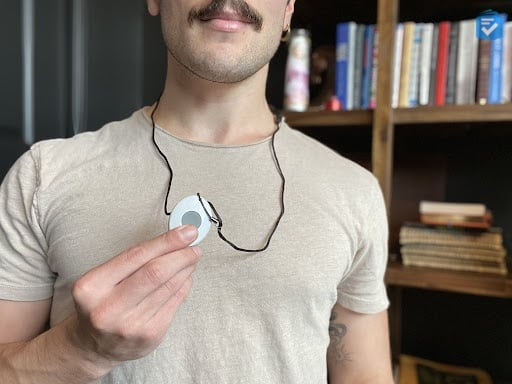
MobileHelp’s Most Affordable System
While MobileHelp offers a variety of medical alerts for both in-home and mobile use, their most affordable system is the MobileHelp Classic, which costs $24.95 per month. MobileHelp also requires no long-term contracts, meaning you can cancel your service at any time and stop making payments.
The MobileHelp Classic requires no landline, as it uses a cellular connection, and it includes a waterproof help button, worn as either a pendant or wristband. In our tests, this system performed exceptionally well, connecting us to help in an average of 20 seconds.
With this system, you can add fall detection for $11 per month. While this price is slightly higher than the standard $10, the low price of the system itself more than makes up for this. You won’t find a cheaper home medical alert system on this list.
Drawbacks
The main drawback of the MobileHelp Classic would have to be its lack of caregiver tracking. Unlike systems from Medical Guardian and Aloe Care Health, MobileHelp offers no way for a loved one to communicate with a system.
Our Verdict
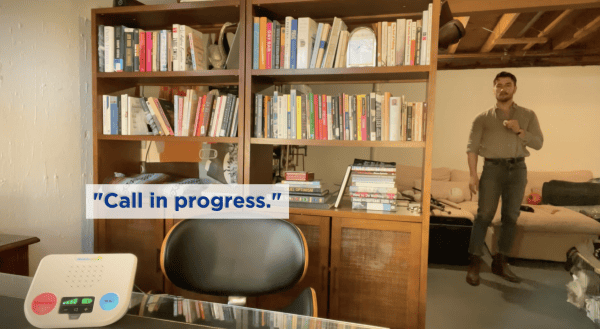
Lack of caregiver features aside, we can’t get over how affordable MobileHelp is, and in our tests, it performed just as well as systems that cost nearly double its price.
To learn more about this provider, read our full MobileHelp review.
Pros
- Affordable systems
- In-home and mobile protection
- Caregiver portal
- Free lockbox with every order
- Quick response times
Cons
- Extra device required for fall detection
- Minimal caregiver tracking
3. Lively Mobile2 - Cheapest Mobile System
What We Like Most:
- From $24.99 per month
- No limit on in-home range
- Fully waterproof system
- Fall detection, two-way talk, and GPS, all in one
Overview
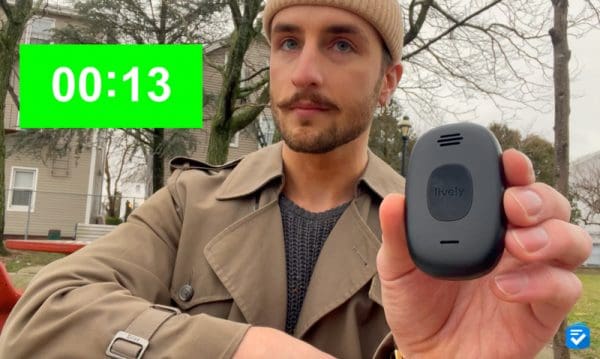
Lively is an interesting company. Rather than offering a traditional in-home system, it has a range of wearables and phones with emergency features. Its range is designed to be practical, sleek, and usable for even the most active and style-conscious senior. Best of all, it costs as low as $25 per month.
Lively’s Most Affordable System
The Lively Mobile2 is one of the best mobile medical alert systems. Unlike an in-home system with a standard help button and base station, the Lively Mobile2 combines both devices into one unit that can be either worn or carried. Its cellular connection also means you can take it just about anywhere, both in and out of your home. The Lively Mobile2 starts at just $24.99 per month (with a one-time $49.99 device fee) — far cheaper than the average mobile system.
The Lively Mobile2 has an IPX7 waterproof rating, which means it can be fully submerged in water and still function. It also has a standby battery life of 82 hours. In our tests, the rechargeable battery lasted just over two days, an impressive length considering how much we used it. Lively’s monitoring center answered each of our calls promptly, with an average response time of 13 seconds.
This mobile system also has optional fall detection, access to nurses and board-certified doctors, and a helpful caregiver app. These features, however, cost extra on top of the standard $24.99 per month.
Drawbacks
There’s no way around it; the Lively Mobile2 is unattractive. Not only is it larger than other medical alert necklaces, but it’s also an unappealing plastic. If you’re looking for something a bit more discreet, then we’d recommend a mobile system from Bay Alarm Medical.
Our Verdict
Appearances aside, the Lively Mobile2 is easily the most affordable mobile medical alert on the market. If your loved one lives an active lifestyle, then there is hardly a better way to keep them protected in and out of the home.
For more information on this system, check out our Lively Mobile2 review.
Pro Tip: While the Lively Mobile2 is a great medical alert with GPS, some people prefer the traditional option. For these folks, check out my rundown of the best medical alert bracelets.
Pros
- Waterproof device
- 30-day trial period
- No long-term contracts or cancellation fees
- Plans from $24.99 per month
Cons
- Device requires daily charging
- Device is ugly

4. Aloe Care Health - Advanced Caregiver Features

What We Like Most:
- Systems from $30 per month
- Detailed caregiver tracking
- Voice-activated emergency calls
- No long-term contracts required
Overview
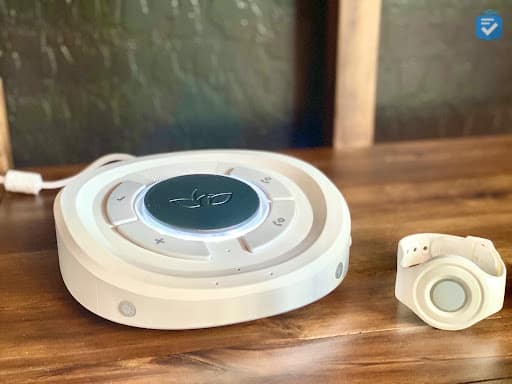
While more costly than some of the other companies on this list, Aloe Care Health impressed us with their advanced caregiver app and voice-activated systems. These systems start at $29.99 per month with no long-term contracts.
Their Most Affordable System
Aloe Care Health’s Essentials system, costing $29.99 per month, looks more or less like a traditional home medical alert system; however, its traditional base unit and bracelet combination have some unexpected features that helped it stand out in our tests.
Central to Aloe Care Health systems is the Aloe Care Health app. Through this app, we were able to remotely view information from the Aloe Care base unit. This included:
- Home temperature
- Air quality
- Motion
These metrics would be an ideal way to make sure that a loved one is doing okay, even when you can’t be around for them.
Aloe Care Health is also the only company on this list to allow caregivers to make calls directly to the medical alert system. With this feature, we could use the Aloe Care Health app to place phone calls directly to our test system. Alternatively, we could press the call button on the base unit to place an outgoing call to loved ones. If your loved one doesn’t have a cell phone, then this would be a great way to keep in touch.
In terms of basic medical alert features, we were also impressed by the reliability of our Essentials system. In our 10 test calls, response agents answered us in an average of 19 seconds. While this is higher than other systems on this list, it’s still better than average.
Drawbacks
All of Aloe Care’s advanced communication features require Wi-Fi to function, so if your loved one does not have this in their household, then we’d recommend a system from Lively or MobileHelp.
Our Verdict
An Aloe Care Health system provides the best features for caregivers as well as reliable medical alert performance.
Pros
- Sophisticated voice features
- Detailed caregiver tracking
- Nonemergency call features
- No long-term contracts
- Optional wearable help buttons
- Systems from $29.99 per month
Cons
- Wi-Fi required
5. Medical Guardian - Fastest Response Times
What We Like Most:
- No long-term contracts
- Quick response times
- Activity tracking
- GPS location technology
Overview
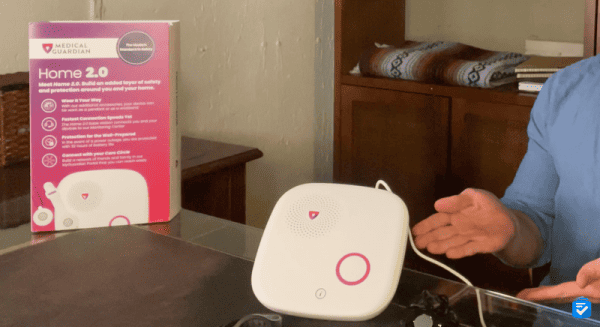
While Medical Guardian is more expensive than the other providers on this list, we can’t overlook how quickly their agents responded to our calls. In all of our test calls, they answered the phone in an average of eight seconds!
Their Most Affordable System
Medical Guardian’s most affordable system, the MGClassic, costs $31.95 per month. There’s a slight catch: This system requires an existing landline. If you don’t have a landline, you’ll have to go with their MGHome Cellular, which costs $38.95 per month.
Regardless of which home system you choose, you’ll get access to water-resistant help buttons, a 1,300-foot in-home range, and the ultra-fast response times from Medical Guardian’s monitoring center. No other system answered our calls as fast as Medical Guardian.
Additionally, we found that Medical Guardian has one of the more advanced apps for caregivers. Through MyGuardian, we were able to track our system’s connection and receive notifications whenever the system placed an emergency call.
Drawbacks
Unfortunately, Medical Guardian’s exceptional performance came at a price. At $38.95 for a cellular home system, the MGHome Cellular is easily among the more expensive home medical alert systems, not to mention its one-time equipment charge of $149.95. Luckily, Medical Guardian requires no long-term contracts on any of its systems.
Our Verdict
While the prices may be high, you won’t find a more reliable medical alert company than Medical Guardian. To learn more about our experience with this provider, read our full Medical Guardian review.
Pros
- Fastest response times
- A wide range of systems
- All-in-one mobile units
- Smartwatch option
- Accurate fall detection
- Waterproof devices
Cons
- More costly than other companies
- No fall detection on the smartwatch

How Medical Alert Costs Work
The determine the actual price of a medical alert system, you should consider the following costs:
- Monthly subscription: Medical alert systems with no monthly fees only call 911, while genuine systems connect you with trained monitoring agents. Generally, monthly subscription charges will be $30 to $50 per month.
- Equipment/setup fees: These one-time fees are paid at the start of your contract. While not every company has these fees, they generally range from $50 to $200.
- Contracts: While Life Alert locks subscribers into three-year contracts, most medical alert companies operate on a month-to-month basis. Some offer discounts for paying on an annual — as opposed to a monthly — basis.
- Accessories: Fall detection, extra help buttons, and other accessories will generally cost extra fees. Some companies will charge a monthly fee, while others will charge one-time fees for accessories.
>> Read more: The Best Medical Alert Systems with Fall Detection.
Why You Should Avoid Life Alert
If you thought Medical Guardian’s $38.95 price tag was high, then you’ll be shocked by Life Alert’s price tags. Life Alert’s systems cost anywhere from $49.95 to $89.95 per month, not to mention activation fees upward of $100. Life Alert also locked us into a three-year contract, requiring us to continue making these obscenely high payments for years to come.
Pricing isn’t the only negative when it comes to Life Alert. To learn more about our experience with this company, and how long we had to wait for them to answer our emergency calls, read our full Life Alert review.
>> Compare: Medical Guardian vs. Life Alert
What to Look for in an Affordable Medical Alert System
With so many medical alert systems on the market, choosing one can be daunting. Here are the factors we think are vital:
- Upfront pricing: You should know immediately how much you’ll be paying each month and what is included in that fee. Most medical alert systems lease the equipment, which means your monthly charge likely will cover the cost of both your system and the accompanying monitoring.
- Comfortable equipment: Most providers offer a pendant or wrist option, and some offer more modern-looking and lightweight buttons. It all comes down to what the wearer is comfortable with. Be particularly mindful when choosing a mobile device, since they tend to be bulkier.
- Waterproof help buttons: The bathroom is a particularly dangerous place for slips, so it’s vital that the button can be worn when bathing or showering.
- No long-term contracts: I’ve heard terrible stories about people being locked into long-term contracts that can’t be canceled even after a user passes away. I recommend only companies that make it easy to cancel your service.
- Backup batteries: You’ll still need your system to function in the event of a power outage, so you should look for a system with a backup power supply.
- Trained monitoring staff: A medical alert system is more than just a dedicated line to first responders. If it weren’t, then it would be nothing more than a glorified phone line. Look for companies whose agents boast The Monitoring Association’s Five Diamond certification, the industry’s highest standard of monitoring.
- No fee pricing: While these systems are few and far between, some medical alert providers don’t charge a monthly fee. Read my guide to unmonitored medical alert systems to learn more.
Conclusion
I recommend seniors find space in their monthly budget for a medical alert system, if at all possible. It may be more than worth the cost to have the peace of mind that comes from knowing help is always close at hand. These five medical alert companies offer different products — from the most basic in-home systems to a very modern mobile system — which means you should be able to find something in your price range no matter your needs.

